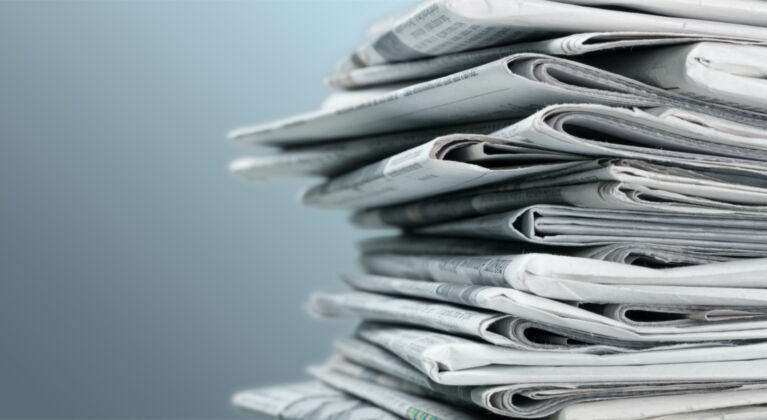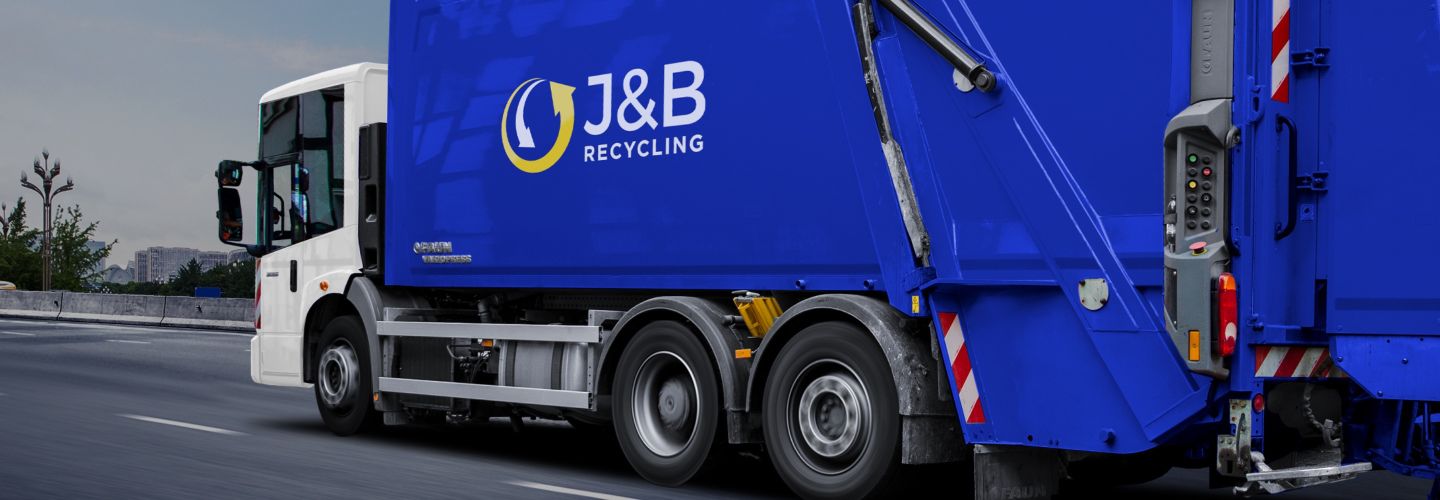

J&B Recycling Knowledge

Recycling and Disposal of Paper
In today's environmentally conscious world, recycling has become an integral part of daily life. Among the materials recycled, one of the most common is paper. In this article we aim to delve deep into the world of paper recycling, shedding light on its processes, the positive impacts it brings to our environment, and how J&B Recycling can help!
Introduction to Paper Recycling
Paper recycling is the eco-friendly process of converting waste paper into new paper products. This practice is not only fundamental to conserving forests by reducing the number of trees cut down for paper production, but it also plays a pivotal role in reducing landfill waste and conserving energy. Around the world, and particularly in environmentally conscious communities, recycling paper has become an integral part of waste management systems. By understanding its importance and incorporating it into daily routines, individuals can make a significant positive impact on the environment, thereby supporting sustainable living and resource conservation.
The Process of Paper Recycling
Paper recycling isn’t just about throwing your used papers into the recycling bin. There's an intricate process behind turning that old newspaper or office printout into a brand-new sheet. Here's a step-by-step guide:
1. Collection: Households and businesses collect paper waste and deposit it in designated recycling bins. Some local authorities ask people to recycle paper and cardboard in a separate bin or container, others offer a ‘comingled recycling service’, which means lots of different recyclable materials can be put into the bin at the same time. Always check with your local authority to find out how the recycling scheme operates in your local area.
It is important that paper is clean and dry when it is put in the recycling bin. It is also important that the bin is waterproof and that if you have a comingled recycling service, there is nothing that could contaminate the paper (e.g. food waste or liquids inside of tubs/bottles).
2. Transportation: Recycling bins are then collected and transported to recycling facilities, like ours. The logistics of this phase is vital, requiring careful planning to minimise the environmental impact and costs.
3. Sorting: At the facility, paper is sorted based on its type and grade i.e. newspaper, paper, cardboard. Any contamination is removed. Here at J&B Recycling, the sorting process is largely automated. To identify paper and cardboard, we use specialist machines called ‘optical sorters’.
These machines use high-resolution cameras and infrared sensors to distinguish materials based on their specific optical properties. When paper or cardboard, with its distinct spectral signature, passes under the sorter's sensor, it's instantly recognised. Once identified, a combination of air jets, conveyor diverters and other mechanical systems are activated to separate and direct the paper to its designated collection area. This technology not only enhances the efficiency and accuracy of sorting paper from other recyclables but also significantly reduces the need for manual sorting, leading to faster and more streamlined recycling processes.
Here is a video demonstrating the sorting process at J&B Recycling:
4. Shredding and Pulping: Once sorted, the paper is then sold back to paper mills where it is shredded and mixed with water and chemicals, transforming it into a pulpy substance.
The pulping process disintegrates the paper fibers, breaking them down to their primary form. This pulp, now free from most of its prior form and contaminants, serves as the foundational material from which new paper products are crafted, ensuring that recycled paper maintains a closed-loop lifecycle, reducing the need for fresh raw materials and conserving our invaluable forests.
5. Filtering and De-inking: This pulp then undergoes a process where contaminants like plastic, staples, and glues are removed. Furthermore, a de-inking process removes any ink from the pulp.
6. Finishing for Reuse: After being thoroughly cleaned, the pulp is then pressed and rolled to create fresh paper. This paper can then be used for various products, from newspapers to packaging.
Benefits of Paper Recycling
Recycling paper stands as one of the most impactful environmental practices, with benefits that reverberate through both ecological and economic spheres. Firstly, it conserves forests by reducing the demand for virgin pulp, ensuring these vital ecosystems thrive and continue to act as carbon sinks. Every ton of recycled paper can save approximately 17 trees, substantially reducing carbon dioxide emissions in the process.
Energy consumption also drops significantly when producing recycled paper compared to virgin paper, leading to fewer greenhouse gas emissions. Moreover, recycling paper curtails water usage and diminishes water pollutants, promoting healthier aquatic environments.
The Finite Lifecycle of Recycled Paper: The Shortening of Fibres
While recycling offers significant environmental benefits, paper has a unique limitation: its fibres shorten with each recycling cycle. Each time paper is recycled, the fibres weaken and become less effective, leading to reduced quality after five to seven recycling rounds. To address this, recycled paper often gets blended with virgin fibres to maintain its strength and usability. Despite this limitation, the benefits of recycling paper — like conserving trees and reducing energy use — remain paramount, underscoring its importance in sustainability efforts.
How can J&B Recycling help?
Paper is collected by J&B Recycling either from commercial sources, or it is recovered from mixed recyclables, general waste, etc. from local authority kerbside collections. The quality of paper produced through our recycled paper is comparable to that made from virgin raw material. If you would like more information, or to discuss your business needs, please don’t hesitate to get in touch.
J&B Recycling are based in the North of England. Our commercial collection services operate from the Scottish Borders down to Hull and North Yorkshire. Our main areas for collecting and processing commercial waste include Teesside (Darlington, Hartlepool, Middlesbrough, Stockton), Durham, Gateshead, Newcastle, Sunderland, North Tyneside and Northumberland.

Delivery & collection
services covering
the UK
Where we operate
Request a quote
For an instant quote, call our team on
01429 272810- 1. Waste type
- 2. Company Details
- 3. Enquiry Details
- 4. Thank you